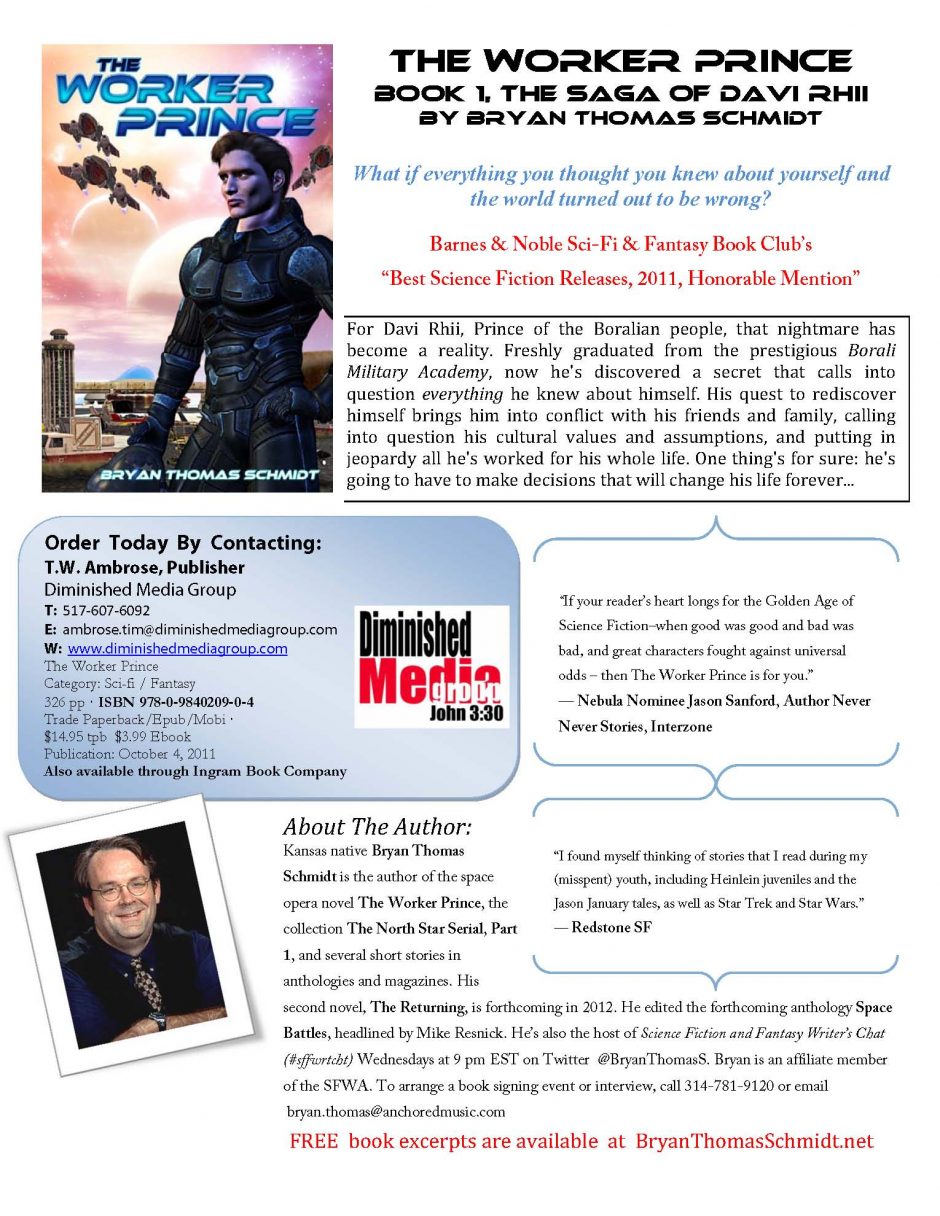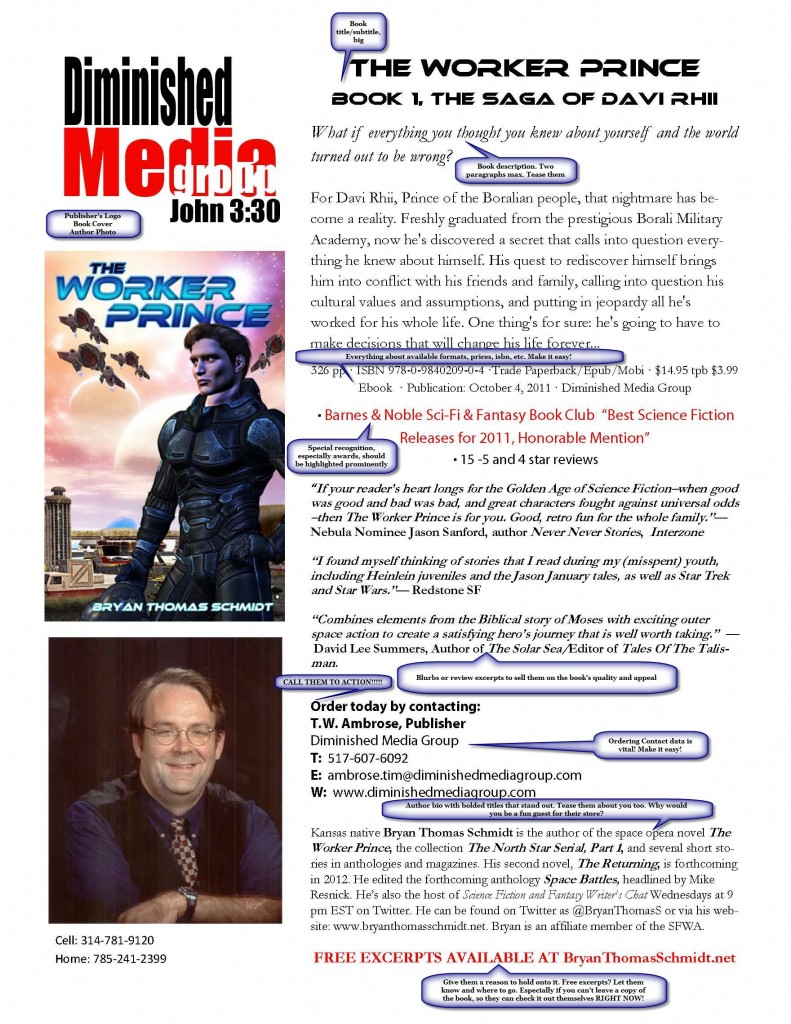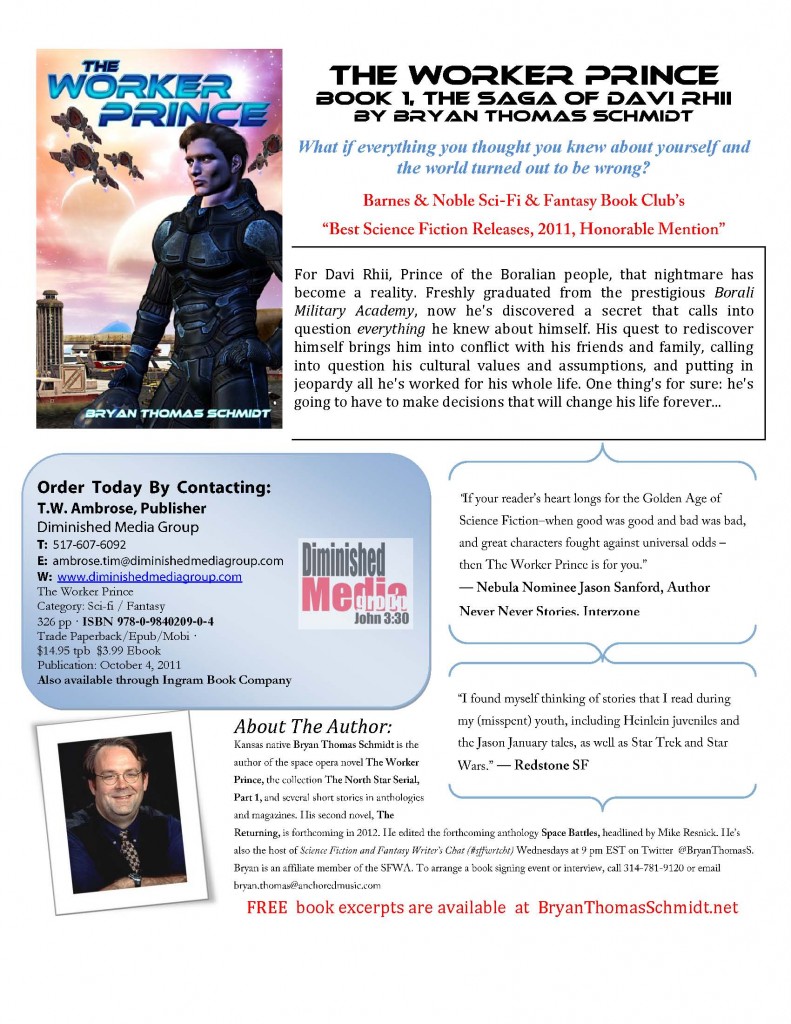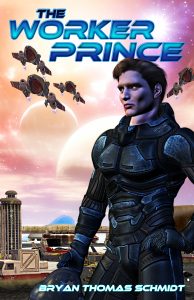 One of the highest compliments anyone has paid me is to tell me “You’re a professional.” I’ve actually heard this several times the past few months. My first reaction is: “I wish I was. I don’t make any money.” But what they really mean is that I act like a professional in my timeliness and practices toward others. I am guilty of professionalism. When I say I’ll do it, I do it and I meet the deadline. If I have a contractual obligation, I try and meet it. The exception has been when I edited Space Battles and I pushed back the deadline due to lack of submissions, but I checked with the publisher first and he was fine. I also did that editing job for a profit share, not pay, which makes a difference. Even for SFFWRTCHT, I handle things like a professional–from my preparations, reading time for each book to how I deal with publicists and authors and how I moderate the hour show.
One of the highest compliments anyone has paid me is to tell me “You’re a professional.” I’ve actually heard this several times the past few months. My first reaction is: “I wish I was. I don’t make any money.” But what they really mean is that I act like a professional in my timeliness and practices toward others. I am guilty of professionalism. When I say I’ll do it, I do it and I meet the deadline. If I have a contractual obligation, I try and meet it. The exception has been when I edited Space Battles and I pushed back the deadline due to lack of submissions, but I checked with the publisher first and he was fine. I also did that editing job for a profit share, not pay, which makes a difference. Even for SFFWRTCHT, I handle things like a professional–from my preparations, reading time for each book to how I deal with publicists and authors and how I moderate the hour show.
Why?
Because if you want to be a professional, you have to act like one. Period. If you don’t act like one, you won’t get treated like one. It doesn’t matter that unprofessional people will still be around acting unprofessionally toward you. Your professionalism has nothing to do with them. It’s on you. You want to be considered a professional? BE ONE.
Why does it matter?
For me, it’s about self-respect and the understanding that when you show professionalism, people who are professionals will respect you and want to work with you. If you like to be seen as serious and someone who’s worthy of people’s time, you must be someone they trust, admire and respect. And since I like to work with people who are reliable, trustworthy and admirable, I will show them I am myself.
What does the dictionary say it means to be professional? “to show respect, professionalism, adherence to policies and prompt payments.”
Who likes to be paid late? Who likes to be disrespected? Who likes people who refuse to play by the same rules as everyone else?
NO ONE.
Yeah, I get it. Some people hate rules. They hate to follow orders. That’s why they’re not in the military. I’m not in the military myself, I get that. But we’re not referring to a set of laws or strict regulations as much as “rules of the game,” i.e. expected behaviors of professionals. If you hire someone, pay them promptly and on time (by contract date or before); if you sign a contract for a novel/story, deliver it on time, in the format requested, polished and professionally ready for publication; if an editor requests rewrites, ask your questions respectfully, then decide if the changes make sense, make them, and turn it back in on time, etc. These are just the thing it takes to get paid for your writing. (No, it doesn’t matter that even publishers are bad about paying on time, etc. Again, their unprofessionalism has nothing to do with yours.) Be reliable. Do what you say you will, when you say you will, with respect for others and a good attitude. That’s what it means to be professional.
Some of the most successful authors I know are very professional: Kevin J. Anderson, Mike Resnick, Mary Robinette Kowal. Kevin keeps good lists and fills his orders promptly and well, with quick thank you notes hand written and includes some swag to remind you to visit again. I’ve seen Mike do a similar thing. Having dealt with all three of these fine people for SFFWRTCHT, they handled prep and questions professionally. They showed up when they said they would (except a brief car trouble for Resnick who stayed longer when required to finish the job right.) Editing Space Battles, which Resnick headlines, his story came in polished, with the right word count, right on time. All three are impeccably polite and kind. Anderson even has hecklers who are anything but kind and polite. I’m sure he gets frustrated. But I’ve never heard him say an unkind word or be nasty back. He’s a professional. Why do these people sell so many stories? They’re a pleasure to work with.
It doesn’t matter that our politics don’t agree or our religions. (Honestly, I’m not sure as they keep that to themselves mostly.) It doesn’t matter that I’m a newbie who hardly anyone had heard of three years ago and hardly anyone has heard of today. They treated me like they would any other fellow professional. And when I asked for edits, Mike Resnick sent them back without complaint. (It was intimidating to edit Mike Resnick. But man, he made it easy and I appreciate it. I don’t ask for story changes lightly and I didn’t ask for much.)
I’ve learned so much just by watching them. If you still don’t believe professionalism matters, I asked SFWA writer friends on my Facebook if they’d rather work with professionals and why, and here’s what Barb Galler-Smith, Fiction Editor for Canada’s On Spec magazine said:
“Working with people who don’t act professionally is easy. I can ignore everything they say and do with impunity and never have to deal with them again. I am grateful that of all the people I have met in the writing biz over the years, only one acted childishly, and that was a source of great amusement behind closed doors. No matter what your endeavour, behaving professionally is essential. It’s about respect for the art, craft, job, message, person, and yourself.”
So be professional. Even if you’re still broke and struggling to make it. Act professional even when you think the rejections will never end. Act professional even when you don’t feel like it. People will remember you as a professional and, take a chance on you one day, perhaps. They’ll forgive you when life happens and you do miss deadlines. They’ll want to work with you. And maybe then you’ll live that dream of making a living as a full time writing professional.
For what it’s worth…
 Bryan Thomas Schmidt is the author of the space opera novel The Worker Prince, a Barnes & Noble Best SF Releases of 2011 Honorable Mention, the collection The North Star Serial, Part 1, and has several short stories forthcoming in anthologies and magazines. His second novel, The Returning, is forthcoming from Diminished Media Group in 2012. He’s also the host of Science Fiction and Fantasy Writer’s Chatevery Wednesday at 9 pm EST on Twitter, where he interviews people like Mike Resnick, AC Crispin, Kevin J. Anderson and Kristine Kathryn Rusch. A frequent contributor to Adventures In SF Publishing, Grasping For The Wind and SF Signal, he can be found online as @BryanThomasS on Twitter or via his website. Excerpts from The Worker Prince can be found on his blog. Bryan is an affiliate member of the SFWA.
Bryan Thomas Schmidt is the author of the space opera novel The Worker Prince, a Barnes & Noble Best SF Releases of 2011 Honorable Mention, the collection The North Star Serial, Part 1, and has several short stories forthcoming in anthologies and magazines. His second novel, The Returning, is forthcoming from Diminished Media Group in 2012. He’s also the host of Science Fiction and Fantasy Writer’s Chatevery Wednesday at 9 pm EST on Twitter, where he interviews people like Mike Resnick, AC Crispin, Kevin J. Anderson and Kristine Kathryn Rusch. A frequent contributor to Adventures In SF Publishing, Grasping For The Wind and SF Signal, he can be found online as @BryanThomasS on Twitter or via his website. Excerpts from The Worker Prince can be found on his blog. Bryan is an affiliate member of the SFWA.
19 5-star & 4-star reviews THE WORKER PRINCE $4.99 Kindle http://amzn.to/pnxaNm or Nook http://bit.ly/ni9OFh $14.99 tpb http://bit.ly/qIJCkS.









